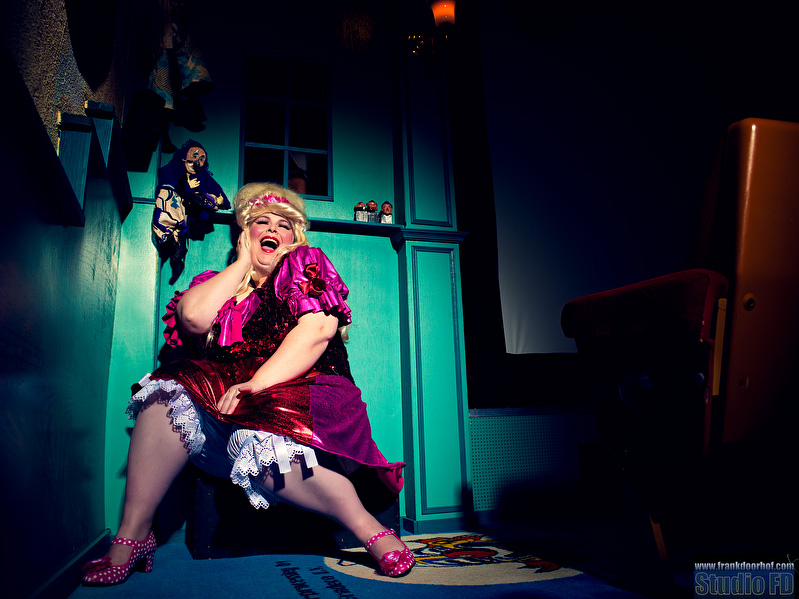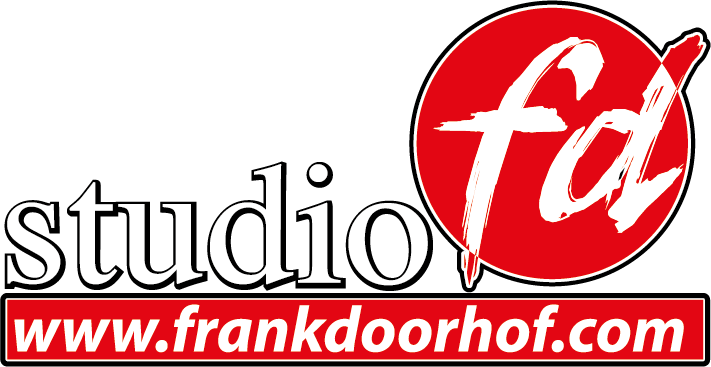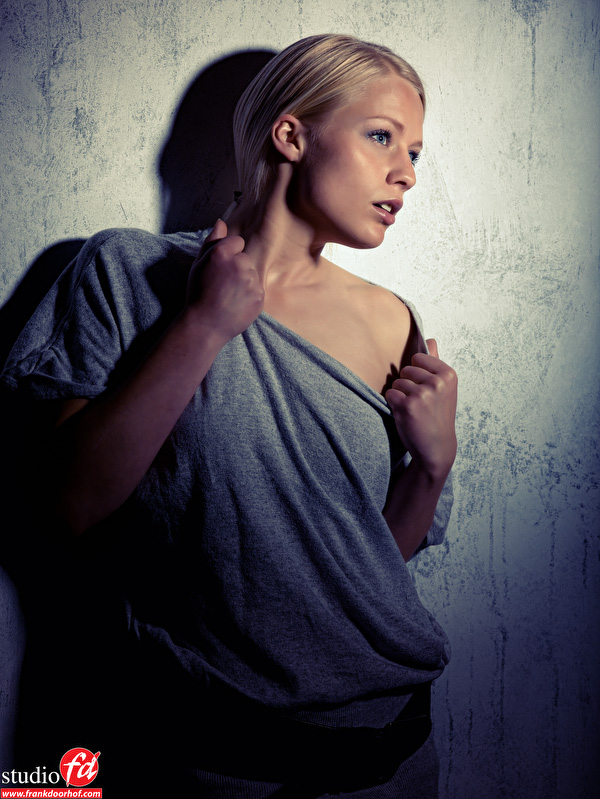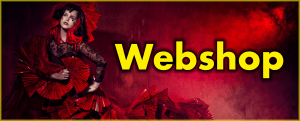Pictures shot during workshops in your portfolio ?
Ok, I hope this one will fire up a “healthy” discussion on Google+ and my blog, so feel free to join on both posts.
Normally I don’t have a lot of time to watch my favorite podcasts, but when I’m driving I have time and so yesterday (while driving) it was time to catch up to some “the grid” episodes, don’t worry I just listen while driving. And one episode triggered me to write this blog post, you can find it here : http://kelbytv.com/thegrid/2011/10/13/the-grid-episode-27/
As you might know I teach a lot of workshops, and during most of these workshops the students also shoot their images of course. The discussion on the Grid was something that I also discuss with my students, and I thought it would be fun to give you my PERSONAL opinion in this blog post. So hang on tight…. here we go.
 Look into the mirror and say “I can do this”
Look into the mirror and say “I can do this”
Well you can do that all day long and sometimes for some things it will work, but most of the time it will not translate to making great images. What you have to realize is that if you are doing a workshop the light setups are done for you by the instructor and not by you, although I have to add that there are some workshops in which I give the students an example picture and tell them to copy it, but overall the lights are set by the instructor and you shoot.
In some workshops the instructor will say :
“stand here”
“use this lens”
“set everything up like this”
he will coach the model and say “shoot”
Well for me it goes without saying that those images don’t belong in your portfolio.
But the area becomes gray when the following happens.
One or two light setups
One of the key elements of my workshops is that I want to help people to make “stunning” images with just one or two lights (although we use up to 8-9 in some rare workshops), I also never instruct my students to be standing exactly here or there, I will give them the tips they need and let them move around themselves and shoot their own images. With the setups I use this can be created back home, although the coaching of the model, the choosing of the right pose and the right location is highly important for the shot to work, do one small thing wrong and everything falls down.
So when a students makes an image like the above I think he/she should be able to put it in their portfolio, it are fairly simple setups, they coached the model themselves, plus they choose their own position and composition.
Concepts
However I also teach workshops which rely heavy on concepts that we worked out before the workshop, in other words my makeup artist and model and me work out a concept that will be shot during the workshop, with this I think the line blurs a lot. I still use the same technique in that I tell my students that they need to coach the model themselves, in fact I push them really hard to do that and sometimes they come up with poses that I just have to shoot because I love them (and to be honest I have a problem myself putting those online although it’s my concept, my light etc.) BUT…. in the end the whole look of the shot was “invented” “thought up” by my team and not the students, so can they post something like that.
 My personal conclusion/opinion
My personal conclusion/opinion
Let’s be 100% honest and frank, some people will come to workshops to shoot and build their portfolio, and I think that’s “wrong”. Some people will say that if they don’t go home without good images the workshop sucked… and I think that’s “wrong” as mentioned in “the Grid” you go to a workshop to be inspired, taught and learn something that you can use to better yourself. Some people during my workshops even say that even if they did not shoot ANY images they would love the workshop. I think that’s the whole idea of a workshop, you go there to go back home and better your own work, you go to workshops to grow into your hobby or profession.
So when do I think you can get the images in your portfolio ?
Well to be honest, when you know 100% sure that you can recreate the images yourself, and not THINK that you can recreate than, but that you really know you can. Some people will say that you can’t put images in your portfolio when sets are used, or professional models and MUAs that you normally don’t use, and although I can go a long way with that, I also think that if you have mastered the light setups…. why not ?
You can hire a pro model, build a set and make the shot….. HOWEVER (and please remember this one), I think it will HURT your work and possible clients will turn away when you place a photo that is exactly the same as the concept that the instructor posted, often agencies/clients/etc. hire you for your “voice” and your unique style and not for something you shot over the shoulder of an instructor, EVEN if you know how to light it and can hire the models/MUA.
So if you are serious about your work and most of all your portfolio I would really advise to visit as many workshops as you can (they really inspire you and help you grow, and I think a workshop is much better than learning from a book or online, although I love kelbytraining of course :D) learn, be inspired, understand and take THIS with you on your guest to work out themes you liked, and recreate this yourself with another model, other clothing, other location and make it a xxxxxx shot and not a yyyyyyyy shot done by xxxxxxx.
Photography is an art form and since forever the great artists have had students, and in the time of paintings those students often worked on paintings which were (how bizarre) sometimes recognized as work of the artist himself, but the students would in most cases just grow and find their own “voice” and build up on their experience which they learned from the master. I think photography should not be different.
So in short.
Yes I would use simple portraits I shot during a workshop, one light setups that I can easily recreate, why not…. However when it goes further and you go into styling, concepts, unique backgrounds where you normally would never shoot or would never think off…. just shoot them for yourself and keep them for yourself as mental notes, but NOT, not ever use them in your portfolio. Your portfolio is a representation of YOUR work, of YOUR “voice” and not of something you shot because the instructor told you to do so. Plus there will be several off those shots out there and devaluate your “value” of the shot….
Feel free to comment or add.




I wholeheartedly agree with your conclusions. A photographer should show his or her work only is he of she would be able to master everything behind a frame, in order to reproduce the same quality of results over and over again.
Zack Arias defines “Professional Photographer” not one who earns his money with the camera, but one who can guarantee consistant results from his images!
Thanks for the post
Carlo
I think it is very tempting to use photo’s from a workshop.
But I agree that if the setup, pose, background and composition are not yours, and you only pressed the button, is not your photo.
During the workshop, I love the fact that you can experiment within the borders of the workshop.
So you can use the instrctors examplle and copy it, but a copy is not your photo.
But when choosing your own composition, you coached the model etc. it might become your photo.
Specially when you had a specific picture in mind and you succeeded to get the result you had in mind.
And when it is not identified as a “Frank Doorhof” and still have a great (intended) shot, I would use it for my portofolio.
Taken in account that the instructor and model agree on that.
From all workshops that I followed, I only used photo’s from one (with concent).
Most of the time, I just experiment with the workshop info.
Interesting Frank. Recently Epsom (Digigraphie) asked me to exhibit at the Photo & Film Exhibition in Johannesburg at which I put up 8 A1 prints. One of the photos I exhibited was the most exquisite shot I took of Floors at the one on one workshop I had with you. Yes the lighting technique was yours which you kindly passed on to me and I have recreated and used repetitively since. No doubt you learned it somewhere. I processed the shot myself and it is simple and not complex.
You have me thinking now…..
I agree with everyhing you said Frank but I have a question. I see ad’s for workshops where their selling point (or one of them anyway) is to “come get images for your portfolio”. Are the oganizers of workshops that put this in their ad’s just doing it as a selling point? Doesn’t this make it harder for the amateur photographer to know what is OK to add to their portfolio? Going to a workshop to get portfolio images has always struck me as wrong, I want to learn – to stretch myself and updating the portfolio is the last thing on my mind. Maybe I am reading these ads wrong though.
No i think you are reading the ads correctly. This is used as a selling point for the workshops, but in all honesty it’s a very bad selling point. And it does makes it confusing for new photographers who thinks that it is probably ok to do it. In the end however your portfolio should reflect who YOU are as a photographer, not what workshops you have attended. If the image you produced at a workshop is exactly like every other picture you have done before and very typical of your photographic style then by all means it can be used, but how often is that true =)
Every time I see one of those ads I stop reading when I see the ‘add to your portfolio’ hook, so I would think that this could work against them too.
Henrik, I have to say that some people don’t have a key photographic style (or just one style) and everything they shoot is a mixture of concepts and ideas they have. I say this because some photographers out there work at creating many styles and options for their clients – some is just a puzzle to figure out how someone else did something and to add a new technique to their toolbox. But, this isn’t always the situation. Besides, most people’s techniques change over time and if the images in their book is over a great time, this may also account for the varied photographic style. Beware of this before stereotyping all photographers with a varied style with this moniker.
I am 100% against using images from a workshop in a portfolio. I teach workshop to get ideas and concepts across and to teach techniques, not to create portfolio images. If someone meets and likes a model at one of my workshops, they can get the number of her agency, and organise their own shoot, but images from a (studio) workshop do NOT belong in a portfolio.
I would never ever use images from a workshop in my portfolio, UNLESS i have done the casting, the styling, the lighting, the concept, the coaching, etc. everything that is even remotedly connected to the photo. Yes there are such workshops aswell. I actually attended a workshop quite recently where we got to do everything ourselves, only guided by the instructor if we needed any help (a very instructor hands off workshop :D.
But for the “normal” photo-workshop, where you as the photographer basically is just the person pressing the shutter button, no way in hell i’d use those images. It would almost be like using someone elses photo in my portfolio.
The good thing with workshops though is that after the workshop, you will hopefully know enough to make new images for your portfolio with your new knowledge. Those images will be truly your images.
And for those who go “Oh but on the workshop we have access to professional models, makeup, and great lighting” those are only excuses for not going out and doing things. Models can be found everywhere, both free and for small fees. Same with makeup-artists. Lighting can be rented, and if not, a good start would be a workshop in natural lighting 🙂 That way you wont need expensive gear to take the picture.
Thank you for a good post Frank =)
I agree that pre-cooked settings do not belong an a portfolio.
But your statements “What you have to realize is that if you are doing a workshop the light setups are done for you by the instructor and not by you” is, in my opinon, a basic flaw in the vast majority of workshops given today.
I disagree with that method and do things differently. During my classes, students are explained and demonstrated the basics of light and instructed how to operate the flash equipment and flash meter. They have to do set of basic, practical exercises with the equipment as well. They are also explained how to direct a model and have to practical exercises as well. With that knowledge in mind, I present them a certain theme and the students are challenged to shoot a short series of photographs matching the theme.
I am convinced that a “hands on, all equipment” approach to classes and workshops is much more educating and much gratifying than shooting a predicatble series in a pre-set environment.
Well in my workshops people learn much more than the predefined setups indeed, however I’m not “blogging” only for my students 😀
In a place not so far from today, I saw an images just as Frank has described here.. So much so, it looked like a ripoff of the original shooter. I happen to mail this guy and say ‘someone is ripping you off’ only to find out the possible offender was in a work shop held by this originator. So, when you see a style placed in someone’s port and it looks SO much like someone else’s work, it’s a complete sham. I agree that the workshops are a place to see/hear someone tell you their idea of light. shape and what you COULD do with it.
The Monkey see, Monkey do thing….. That’s not working.
I’m not an instructor but Wow, I didn’t even know there could be a debate or even a question on the matter. But if it sadly surfaces it does mean that a few lost minds are in dire need of being taught what the meaning of CRAFT is, and we’re not even in art territory on the subject !
But hey in the day and age where art is misbelieved to be just a click away do I even want to start the debate on why 95% of photographer are just technitians (I’m in there, and sometimes not even quite there yet) and not artists …
Back to our subject : Do people realise that a captain of a sea vessel never handle the helm ? he merely gives instructions to steer it. Now one has to decide whether to aim for Captain or steering monkey.
I’d rather be the Captain of a bucket than a Chimp on a super tanker, but that’s just me … happily crawling my way, the hard way, towards light …
Wow, steal can’t believe it … I must be of the naïve type, happy to know that however crappy my photography is at least mine !
I have gone to workshops in the past, I have a camera, but it is usually
just a point and shoot and I take a photograph of a pull back to show
the setup. I have a pad and pencil and draw myself diagrams. I then
will go back and try and re-create it myself in my studio. I don’t consider, and will never include anything that is set up by some one else as my work. I didn’t find the models, create the hair, coordinate the shoot etc. I think it actually shoots the photographer in the foot as people will now hire that photographer based on images he may not be able to re-create and then that leads to ultimate customer dissatisfaction!! As an aside, I never go home with a release from the models at a workshop giving me permission to use their likeness for commercial reasons. I don’t remember anything in workshop sign ups that give me that permission. It has been a few years since I have attended one so maybe that has changed.
Frank, thank you for putting your thoughts on this in a blog entry when it comes to doing something like this. Unfortunately, many people do put their photos from a workshop in their book, and count them as their own. This also happens at meet and greets where one person shoots over the shoulder of someone else who sets up the lighting, directs the model, and even dictated the model’s clothes and makeup (and why I rarely go to them any more). I noticed some have mentioned releases earlier in the comments – many photographers don’t care to get them and still use the images how they see fit after a workshop or meet and greet.
There also has to be a distinction made from workshops and meet and greets as compared to people working as assistants. I have watched photographers have all their equipment configuration, set the scene up, posing the models get set up by their assistants and all the photographer does is click the shutter (they actually do a lot more – it is usually their concept and idea for the image and all are working to complete that one concept). The assistants even do the post production work, too! And, then there are the assistants who take images at this type of shoot that also claim them as theirs.
Thank you again.